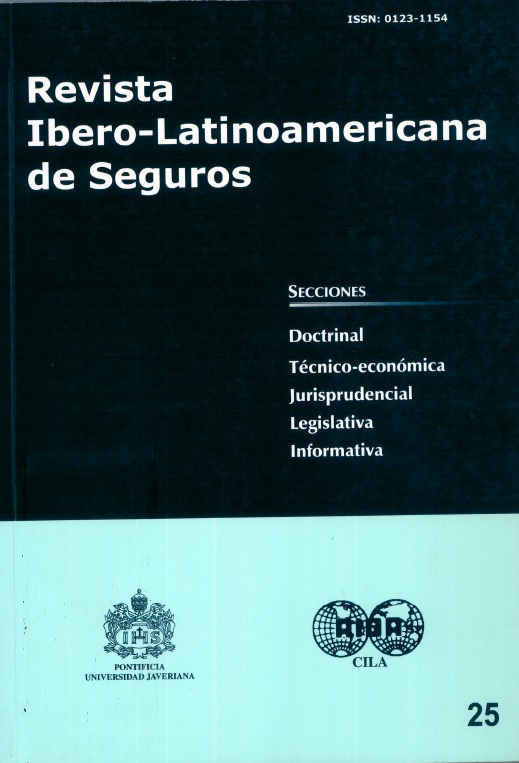Resumo
Este trabajo estudia las distintas formas de terminar antes de tiempo el contrato de seguro. Luego de estudiar la nulidad absoluta y la relativa, la misma que también se llama rescisión, el autor examina la legislación sobre el contrato de seguro vigente en el Ecuador para mencionar que la rescisión tiene lugar cuando el solicitante no declara el estado del riesgo objetivamente sino que lo hace falseando la verdad o reteniendo información sobre “aquellas circunstancias que, conocidas por el asegurador lo hubieren hecho desistir de la celebración del contrato, o inducido a estipular condiciones más gravosas”. Luego, el trabajo versa sobre la condición resolutoria tácita que está implícita en todo contrato bilateral para estudiar en qué casos se aplica al contrato de seguro cuando alguno de los contratantes no cumple lo pactado. También dedica unos párrafos a la caducidad, que puede operar automáticamente como causa de terminación anticipada del contrato de seguro cuando el asegurado no paga a tiempo las cuotas en que se fraccionó la prima para la facilidad de su pago. El aporte original consiste en presentar la palabra “resciliación” como la que falta en la lengua española y en el léxico del foro para señalar la acción mediante la cual los contratantes se ponen de acuerdo para dar por terminado un contrato de seguro. En otras palabras, terminación anticipada del contrato de seguro por mutuo acuerdo de sus contratantes. La palabra resciliación tampoco existe en inglés ni en francés. En todos los casos analizados se comenta la forma de calcular la devolución de la prima por el tiempo en que el seguro no estará en vigor.-
Esta revista científica se encuentra registrada bajo la licencia Creative Commons Reconocimiento 4.0 Internacional. Por lo tanto, esta obra se puede reproducir, distribuir y comunicar públicamente en formato digital, siempre que se reconozca el nombre de los autores y a la Pontificia Universidad Javeriana. Se permite citar, adaptar, transformar, autoarchivar, republicar y crear a partir del material, para cualquier finalidad (incluso comercial), siempre que se reconozca adecuadamente la autoría, se proporcione un enlace a la obra original y se indique si se han realizado cambios. La Pontificia Universidad Javeriana no retiene los derechos sobre las obras publicadas y los contenidos son responsabilidad exclusiva de los autores, quienes conservan sus derechos morales, intelectuales, de privacidad y publicidad.
El aval sobre la intervención de la obra (revisión, corrección de estilo, traducción, diagramación) y su posterior divulgación se otorga mediante una licencia de uso y no a través de una cesión de derechos, lo que representa que la revista y la Pontificia Universidad Javeriana se eximen de cualquier responsabilidad que se pueda derivar de una mala práctica ética por parte de los autores. En consecuencia de la protección brindada por la licencia de uso, la revista no se encuentra en la obligación de publicar retractaciones o modificar la información ya publicada, a no ser que la errata surja del proceso de gestión editorial. La publicación de contenidos en esta revista no representa regalías para los contribuyentes.


